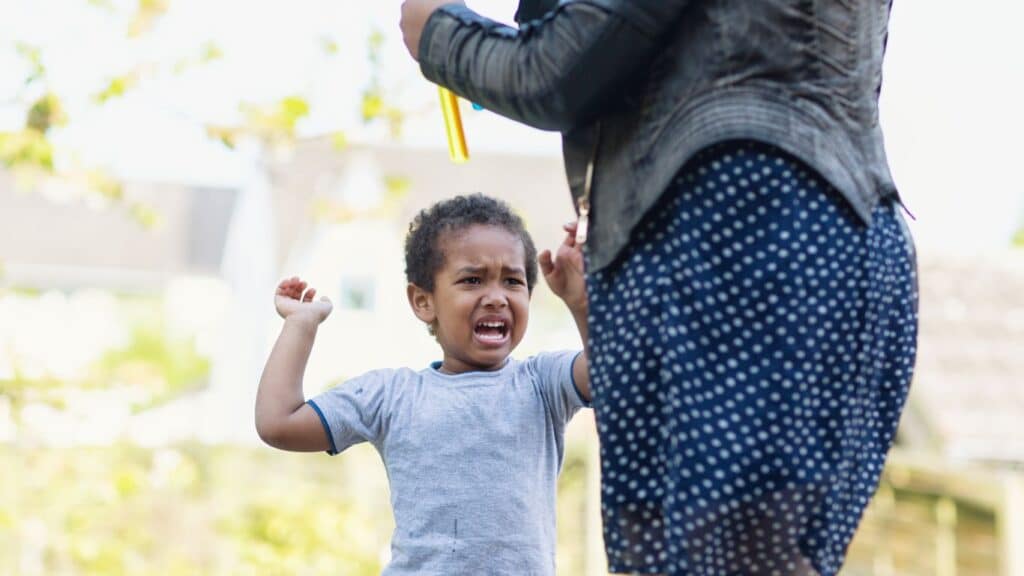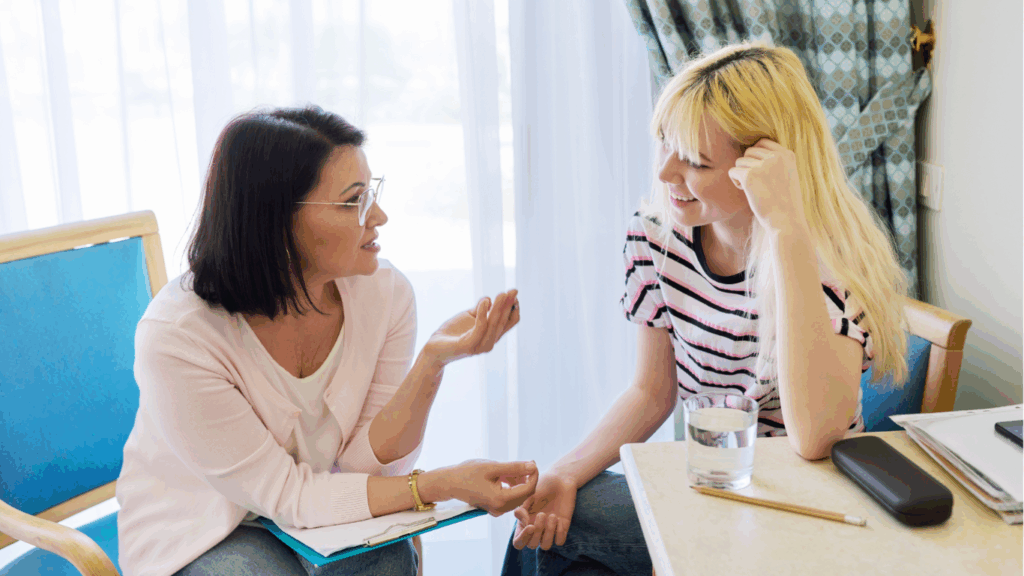“Adopted Voice” is our response to the #FlipTheScript campaign, which promotes the importance of making space for and listening to the voices of adopted people. If you’re an adoptee of any age who’s interested in writing a column for “Adopted Voice,” we’d love to hear from you! Reach us at editor@belongingnetwork.com.
Advice from an adoptee
Hi, I’m Jamie: a blogger and mother who loves home decor, DIY projects, organizing, baking, and throwing parties. I’m also an adoptee, and I‘m here to share my personal insights in the hopes that they will help adoptive families. I’m not an expert by any means, and you don’t have to agree with me; my advice is based on my own opinion and first-hand experiences. Here are my top six tips on how to support your adopted child as she grows up.
1. Celebrate uniqueness, but keep comparisons to a minimum
I had a younger sibling who was conceived naturally by my parents. Family members were quick to point out how she had our grandmother’s nose or her aunt’s eyes. Of course, no one ever said things like that about me. Adoptees are bound to hear those types of comments at family event, but after a while we can start to feel excluded.
On the flip side, I was a social butterfly and the rest of my family were introverts. They didn’t think I could possibly relate to how they felt in certain situations because I wasn’t born to them.
This always bugged me. If you have kids biologically, chances are they are not going to be 100% like you either! I have two biological kids. Sometimes they’re like me, and sometimes they’re not. Do you know why? Because they’re their own people. Everyone is unique, adopted or not. Case closed.
2. Tell the truth
I knew from day one that I was adopted, but some kids in my generation weren’t so lucky. I had to wait until I was 18 to search for my original birth certificate and adoption records, and then it took me years to find. I was born in the 1970s, when adoption records were closed. I wanted to find that information so desperately because I was given ZERO information as a child. I didn’t want to hear a fluffy story about how some woman loved me so much that she gave me up. I’m sorry, but that makes no sense to a child. Or a teenager. Or even a grown-up adult for that matter.
People want to know where they come from, period. It doesn’t matter if they were adopted into an amazing family or not. It’s just a natural, inherent need. Adopted people need to know where they come from, what their story is, and what their birth parents look/looked like.
Everyone has a beginning. Could you imagine not knowing yours? Kids usually do well with a few bits of information at a time. Just go with the flow when their questions come up. Give your kids all the information you know a little bit at a time as questions come up over the years.
3. Search for records together as a family
I know this may be a touchy one for adoptive parents. You may not want to revisit the past or bring your child’s birth family into your life. When your child is old enough to search, though, knowing that you support them 100% will make them feel more loved than anything else you could do. If you’re against their desire to search, you’ll make them feel like they are doing something wrong. Please read number six again. You can be supportive and search together as a family, or you can force your child to search all on their own like it’s a secret (and we don’t like secrets!)
4. Always be ready and willing to talk about adoption
Any time I brought up the word “adoption” in my household I felt like I’d said a big fat swear word. My mother would sigh or get a really anxious look in her eyes, as if I just asked her how babies were made. She did the best she could, but I felt awful just for asking! Why should I feel awful? I did nothing wrong. It’s a natural feeling to want to know more about your beginning.
As adoptees learn more about their adoption story, they may begin to feel some abandonment issues. This is natural and normal. But don’t keep information from them because you’re worried about how they’re going to feel. They need to know that you’re always there for them and that you’re not afraid to talk about their adoption story.
5. Treat your child like a normal person
I know. Ground breaking concept, isn’t it? (I’m being sarcastic, obviously.)
I had a completely different role in my family than my sister because of my perceived differences as an adoptee. I was given a lot of grown-up responsibilities in my teen years, which made me resentful. It goes both ways, though. Don’t let your adopted child skip out on chores or otherwise give them other kinds of special treatment just because they are adopted (unless, of course, they have a disability that needs to be accommodated.) Remember, you’re raising this person. They’re your kid. They’ll have the same traditions as the rest of your family. If they have traditions from their own birth culture, then embrace them as a whole family. If you’re not up for the task, then it’s my personal opinion that you’re not ready to adopt at all.
6. Love and support them unconditionally
Life can be hard and cruel. Everyone in this world wants to feel loved and heard. Your adopted child will feel like they truly belong with your family when they know they always have your unconditional support, no matter what. That will help them get through the tough times and come out stronger on the other side.
Jamie Lundstrom lives in North Vancouver. She loves decorating and interior design, specifically French, vintage, industrial and beachy decor. She has two beautiful kids who love to help with her projects, and she’s also an advocate for other adoptees. Visit her blog, So Much Better with Age, at www.somuchbetterwithage.com.




